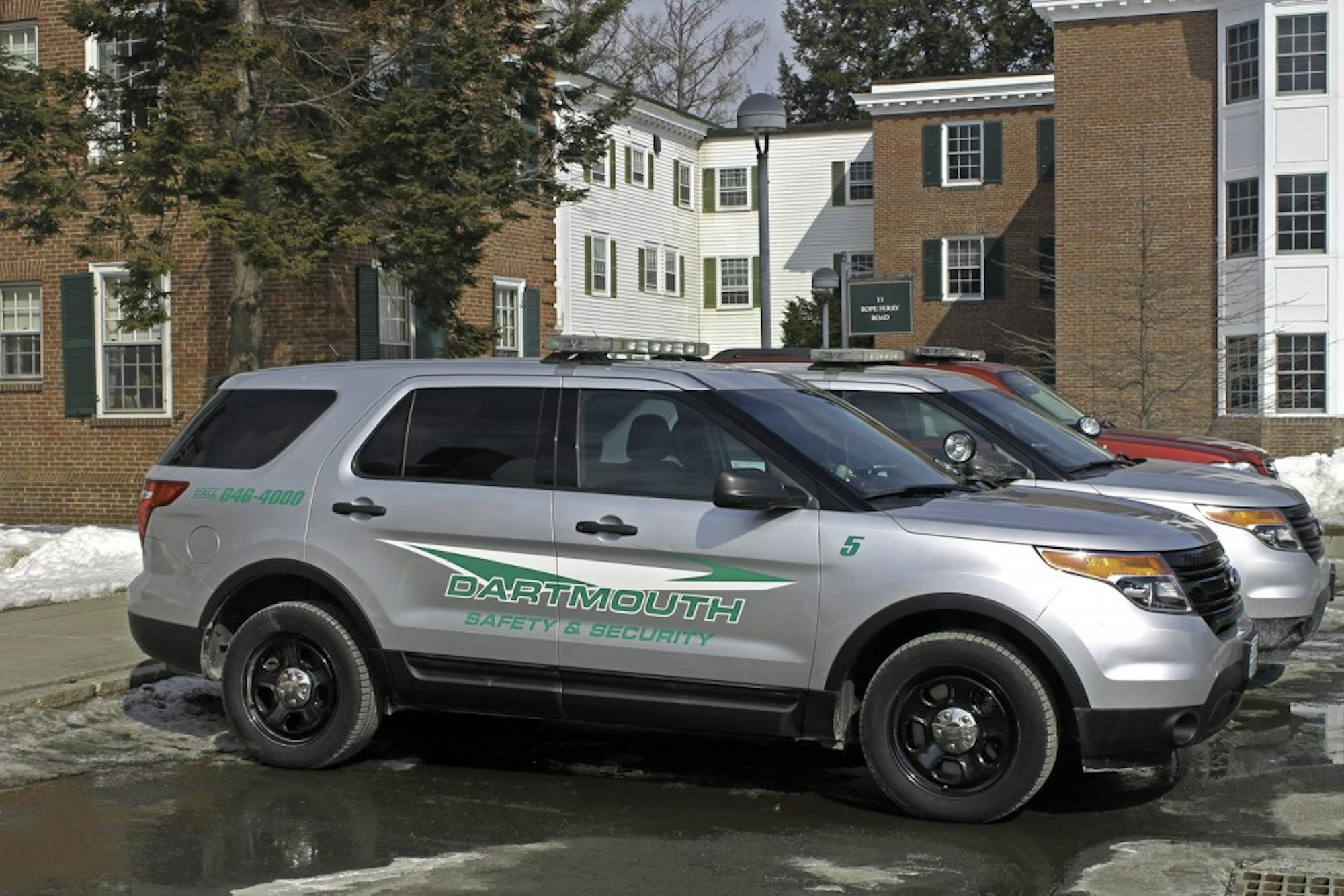The nationwide push for colleges and universities to allow permitted individuals to carry concealed weapons on campus is mounting, with at least 10 states currently considering bills in their legislatures to remove or loosen bans. As the movement gains momentum, advocates for the law have increasingly used the argument of arming students as a way to help reduce sexual assaults on campus.
Hanover Police Chief Charlie Dennis said that concealed carry would have no effect on the vast majority of sexual assaults reported on campus, as most were between acquaintances in a familiar setting rather than in violent confrontations. He also said that allowing concealed weapons on campuses could create new risks.
“It’s certainly something I don’t support,” Dennis said. “Any time you bring firearms into a situation where there’s a lot of alcohol, that creates its own problems.”
Dennis said that if similar legislation were to pass in New Hampshire, he does not expect to see significant changes in crime rates. Though a concealed weapon could be useful when faced with a threat like an attacker or a shooter, Dennis said, allowing campus carry would likely just result in more accidents.
“I think the good that it could possibly serve is overshadowed by the fact that it would cause more problems,” Dennis said.
This argument has faced backlash from sexual assault experts and survivor advocates as misguided in its understanding of sexual assault. Laura Dunn, founder of non-profit advocacy group SurvJustice, said that the common perception of rape as a violent attack by a stranger is not representative of the majority of sexual violence on college campuses. Allowing guns on campus, Dunn said, would likely be ineffective and possibly more dangerous for victims, as it introduces a new risk to the environment.
“The vast majority is acquaintance rape and dating violence, people you know and trust,” Dunn said. “You’re not going to go on a date with a gun strapped to your hip. You’re assuming you know someone, that you’re able to trust them.”
The argument for arming students to prevent sexual assault can create negative messages regarding consent, Dunn said. Instead, she emphasized the need to have meaningful conversations about consent and healthy sexual attitudes at younger ages, which would lead to less sexual violence.
“We’re still sending messages to women that you have to protect yourself, that there’s nothing we can do to make them stop,” Dunn said. “I think the very perspective of always looking at victims and telling them what more they could do is missing the obvious solution of talking to men about consent in the first place.”
Andy Pelosi, founder and executive director of the Campaign to Keep Guns off Campus, said that while the argument that “women need to be protected” has been used before by the gun lobby, this has been the year where that logic has been pushed most forcefully through lobby and legislation. Pelosi also said that allowing guns on campus could arm potential perpetrators.
Zachary Zalneraitis, director of public relations for the grassroots organization Students for Concealed Carry, said that the distinction between on and off campus is arbitrary. The current bills pushing for campus concealed carry state that only licensed individuals may carry weapons on campus, Zalneraitis said. The idea of arming perpetrators is inaccurate, he said, because an individual must go through extensive criminal and mental health checks in order to obtain concealed carry permits.
If an individual could carry a concealed weapon in any other setting, he argues, they should not arbitrarily be prevented from carrying just because they are on a college campus. While concealed carry is not the solution to sexual assault, he said, colleges should not deny students the right to protect themselves.
“All violent crime on campus is not prevented by gun-free zones,” Zalneraitis said. “If the college can’t guarantee you won’t be attacked, then it shouldn’t prohibit you from carrying a gun to ensure your own safety. The police response time of a couple of minutes could be a lifetime if you’re being attacked.”
The issue has particular relevance to Dartmouth’s campus. Last August, Taylor Woolrich ’16 wrote a column for Fox News in which she discussed her experience of being stalked. In the column, Woolrich said she requested permission from the College to have the gun she was licensed to carry with her on campus, but was denied by Dartmouth Safety and Security, who instead reportedly told her that she could call them to arrange an escort.
“If schools and society can’t guarantee my safety and the safety of victims like me, it’s time we have the chance to defend ourselves so we can stop living in fear,” she wrote in the piece.
Woolrich did not respond to two requests for comment for this article.
Director of Safety and Security Harry Kinne and Title IX and Clery Act Compliance Officer Heather Lindkvist declined to comment, and forwarded requests for comment to director of media relations for the College Diana Lawrence. Lawrence provided The Dartmouth a statement via email.
The statement says that the College has a policy prohibiting handguns on campus. The College does everything it can to support and care for students, the statement read.




